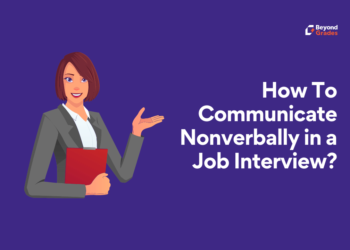[ad_1]
It was the year 1997 when Steve Jobs returned to Apple after a 12- year-long gap. The firm of which he was a co-founder was on the verge of bankruptcy.
Steve conducted a team meeting and elucidated the significance of passion in regenerating the company. He explains, “Apple is not about making boxes for people to get their jobs done, although we do that well. Apple is about something more. Its core value is that we believe that people with passion can change the world for the better.”
The phrase “people with passion can change the world” is no less than a proclamation. Passion is a highly vital factor in establishing your professional life. It steers you towards your objective and replenishes you with hard work and commitment. Merriam Webster defines passion as “a strong liking or desire for or devotion to some activity, object, or concept.”
Cracking what you are passionate about is a big task in itself. However, once you have figured out your passion, you can choose a career option and decide your dream job.
So, below are some questions you should ask yourself to figure out what you are genuinely passionate about:
1. What is the one thing that makes you lose track of time?
What is that one activity that makes you forget to eat and sleep? It does not have to be something you do daily. It can be any activity or hobby you followed as a kid or work you accomplished in your previous job. This is similar to the boring lectures in school that seemed to be lengthening forever while the time passed as quickly as a flash when learning something you enjoyed.
2. What is it that you can discuss with people all the time?
Is there any activity or hobby that you relish doing to such an extent that you can spend hours talking about it when you find somebody else admiring the exact similar thing?
This could be something you like to learn more and more about. There will be that one thing which excites you the most – maybe something you like googling about every night before sleeping – or binge-watching about on youtube.
Think about it with a fresh mind and be honest with yourself. Answering these questions can take some time, but you will surely recognize your passion soon!
3. If you had a financially stable life right now, what would you be pursuing?
Another essential question to consider is if the money factor was eliminated from your life – what would you be doing?
Imagine yourself in a house filled with all that you need. A life that is financially secured and stable. You have everything that you need. If money was not a deterrent, what is you would be pursuing?
4. What are the things you always wanted to try?
It is not a guarantee that you will discover your passion in any of the fun-time activities of your childhood.
You can also explore the activities that always piqued your interest, but you never tried them.
Do not remove activities just because you are uncomfortable doing them. Remember, right from the beginning to your final goal, and you have to step out of your comfort zone to establish your career. Your stability may be comfortable presently, but to advance in your life you need to take risks.
Be ready for any new opportunities – there is a likelihood that you will discover something you are passionate about that you didn’t even know existed.
5. Do you think you enjoy doing what you speculate is your passion?
It is best if you try out the activity you think may be your passion. Try it out as a hobby or a side job to find out if you are enjoying it. You may be passionate about it for a few days and then get bored with it. So, it is better to test for at least a month before taking any decision.

When interviewing for a vocation, the interviewer evaluates how suitable you are for the company and how beneficial you will be to its development. To measure your strength as a competitor, your interviewer may ask – ‘What is your dream job?’ This question helps employers to gauge how motivated individuals are towards the job.
When you are answering this question, keep the following things in mind –
1. Point out your skills
You can start by talking about your skills and current talents and how they will help you in the job. The interviewer will not expect that you have every skill needed for the job, so you can name the areas in which you would like to develop. You can further talk about some objectives you have planned to grow in those areas. This will further demonstrate your devotion and enthusiasm towards your work.
2. Mention your values
Talking about your values will help the interviewer to comprehend what encourages you in your professional life and if your virtues are similar to the company. Try associating it with the reasons why the company should employ you.
3. Adjust your answer according to the job
While you should be honest in your interview, and your answers should express your authentic skills and talents, you should also see that your answers are connected to the vocation you are applying for. When you overlap the skills and aptitudes you already possess with those you are looking for, you indicate more reasons why the company should hire you over others.
[ad_2]
Source link









